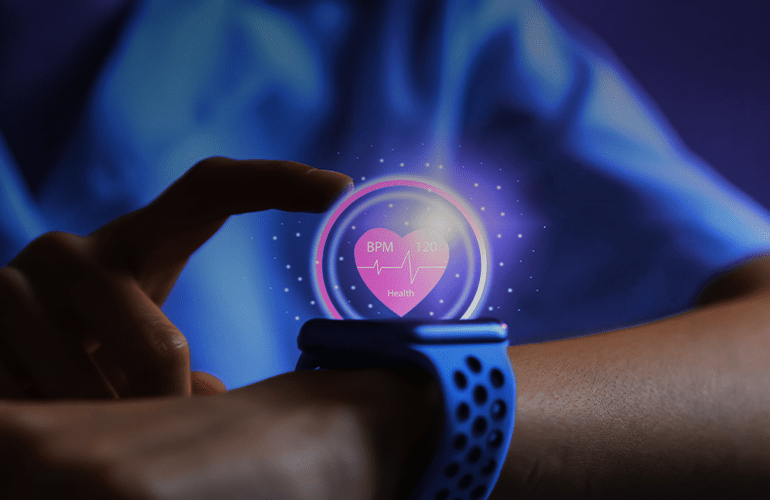
eHealth software testing
Even a small error in a system’s operation can cause serious health problems or cost a life. We at a1qa assist life science corporations, pharmaceutical companies, hospitals, and medical device manufacturers in testing healthcare solutions, namely:
- Electronic health record (EHR) systems
- Healthcare data analytics software
- Pharmacy management solutions
- Health information management systems (HIMS)
- IoMT systems
- Patient portals
- Clinical data warehouses
- Remote patient monitoring systems
- Appointment scheduling and booking solutions
- Telehealth & telemedicine systems.
Healthcare solutions we test
Be it improving Agile workflows, preparing for certifications, or releasing IT products, we assign QA specialists who apply a risk-based testing approach while ensuring the quality of the following solutions:
CRM software
Our testers confirm that CRM systems perform as intended. We apply functional testing to verify features against requirements, integration testing to establish smooth CRM interoperability, performance testing to make sure it endures peak loads.
Big data
Our testers confirm unhindered performance of apps with large data sets and provide high security, integrity, and accessibility regardless of the architecture type the software is built with.
EHR solutions
We verify all EHR components and check the loading of PHI and other data files, the processing of gathered information, the timely occurrence of alerts, and correct generation of reports.
Mobile and web applications
To provide high-quality web and mobile healthcare software (e.g., electronic prescribing solutions, pharmaceutical systems, telehealth software), we check the entire end-user flow and ensure patient data and medical records protection, resilience to increased load, intuitive interface, and smooth operation of all features in line with specifications.
Embedded solutions
We check the software that is embedded in or interacts with medical equipment, such as blood transfusion devices. We detect software malfunctions, provide proper solution operation after diverse updates, ensure that it meets specifications, and confirm that the software won’t harm patients.
IoMT systems
Testing is performed either on real devices or by simulating any IoMT device to improve test coverage and advance software operation. We help companies ensure the accurate collection of patients’ health information and monitor vital indicators.
ERP systems
We ensure that each ERP module (clinical process management, inventory management, purchasing, etc.) doesn’t have any software issues and fully meets the organization’s needs.
Cloud software
Our engineers help companies migrate healthcare software (e.g., EHR, CRM, ERP) to the cloud by checking every aspect and verifying that large data volumes are transferred without any corruption or duplication.

Software testing types we apply
We gauge the quality of healthcare solutions using a variety of testing solutions depending on clients’ business needs:
Security testing
To provide the maximum level of software security, we uncover vulnerabilities and areas prone to risk by performing required cybersecurity validation, from vulnerability assessment to penetration verification.
Accessibility testing
To make sure that healthcare solutions for medical institutions are accessible to people with diverse disabilities, we perform testing in accordance with international standards (WCAG 2.2, ADA).
Performance testing
To transfer large data quantities and ensure failsafe operation of online health services under peak loads, we verify client- and server-side performance. We also set up further system monitoring to support software stability.
Compliance testing
With our assistance, healthcare providers can confirm that medical IT solutions are safe. We verify that they meet compliance requirements outlined in industrial regulations (HIPAA, FDA, HL7, ONC, IEC 62304, etc.).
Compatibility testing
To deliver smooth operation of eHealth web and mobile applications, we write test cases and check that no impediments in OS operations occur, UI is flawless, and the IT product works equally well in diverse browsers and mobile devices.
Integration testing
We confirm that various modules and components of eHealth software that involve multiple healthcare applications (e.g., EHRs, laboratory systems) interact and communicate smoothly.
End-to-end testing and UAT
To make sure that medical software is production-ready and to avoid post-release risks, we apply real-world use cases that cover actions of diverse user types (doctors, patients, insurers) and verify the entire application flow with end-to-end and acceptance testing.
Functional testing
We create testing strategies and test plans to verify diverse healthcare systems (ePrescribing, telehealth software, etc.) against functional specifications to ensure that they perform as expected. We use different functional testing methods, from acceptance to system testing.
Automated testing
In addition to manual testing, our engineers speed up testing cycles of medical software, improve software quality due to increased test coverage, and decrease operational expenditure. By developing effective testing tools, such as an in-house test automation framework powered by AI, we simplify test automation adoption and maintenance.
Read our healthcare testing case studies
What our clients say

Why a1qa?
Decreased operational costs
Experienced QA specialists help companies save time and money on training their in-house testing teams.
Continuous testing
We speed up testing cycles and release stable software for the healthcare domain with the help of early testing and continuous quality assurance.
Deep healthcare expertise
We leverage extensive knowledge and customized QA approaches gained over 2 decades of successful operation.
1,100+ QA engineers
We swiftly assign QA specialists to short-, mid-, and long-term projects at any SDLC stage, scale teams upon requests and in line with changing project loads.
Lowered outsourcing risks
We follow an in-house system of KPIs to regularly track progress, provide an opportunity to test-drive our services by performing pilot projects, sign NDA, SLA, and strictly follow our clients’ internal policies.
Effective training
100+ courses in a1qa Academy help people upgrade technical and process-related skills and enhance leadership competencies.
Frequently asked questions
QA teams have deep domain knowledge and follow a risk-based approach. They are trained in 100+ in-house courses and have experience testing solutions like clinical data warehouses, pharmacy systems, and patient monitoring tools.
Test automation helps reduce the costs of eHealth software QA by speeding up testing cycles, ensuring high software quality through thorough test coverage, and decreasing operational expenses. Engineers can also use in-house AI-powered frameworks to simplify test automation adoption and maintenance.
QA helps prevent issues like unstable embedded software, untested telehealth platforms, and inefficient QA workflows. It also allows project teams to timely resolve issues with integration, compatibility, and test automation, prevent production defects, improve user experience, and support patient safety.


